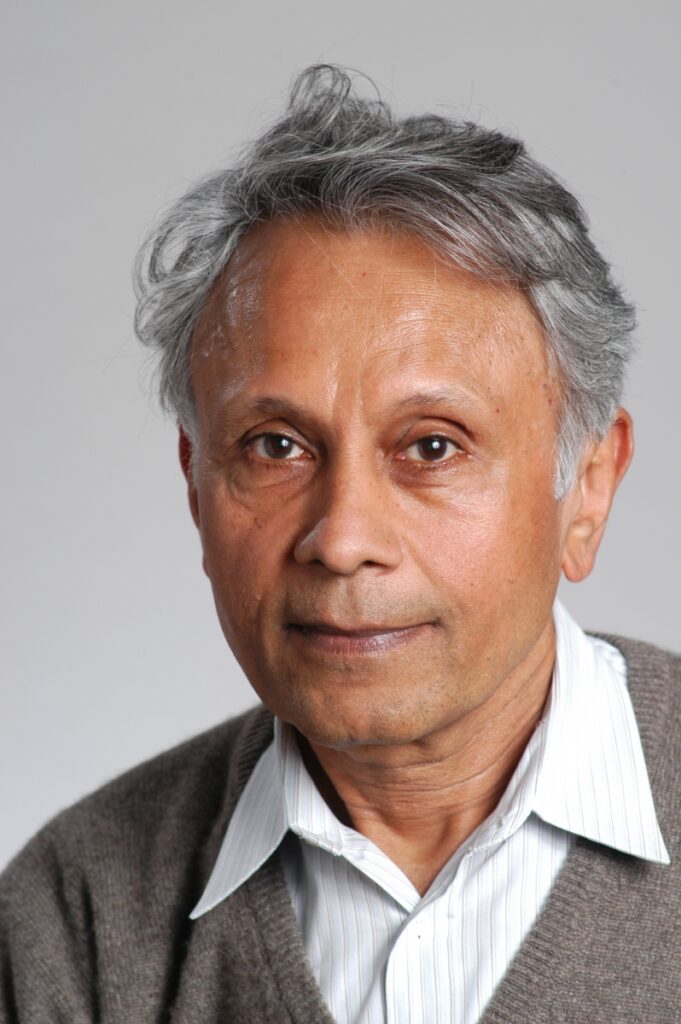 (AGENPARL) - Roma, 28 Giugno 2022
(AGENPARL) - Roma, 28 Giugno 2022(AGENPARL) – BERKELEY (CA) mar 28 giugno 2022
June 23, 2022 by KIrsten Mickelwait
Pravin Varaiya, a renowned expert in smart transportation systems and the Nortel Networks Distinguished Professor emeritus in the Department of Electrical Engineering and Computer Sciences (EECS) at UC Berkeley, died on Friday, June 10. He was 81.

Pravin Varaiya, professor emeritus of electrical engineering and computer sciences.
Varaiya spent 50 years on the faculty of Berkeley’s College of Engineering, where he made significant societal impact through his work on the economics of the internet, energy and transportation systems and urban environments. In each of these areas, he brought an economist’s grounding in the fundamentals of markets, incentives and choice, leveraging system theory to show where economic analogies between domains succeed and fail. His work in energy systems anticipated the market and control challenges facing modern intelligent systems, while his research on urban environments spoke to the significance of location as it influences gentrification, labor markets and zoning.
From 1994–97, Varaiya served as director of California PATH, a multi-university research program dedicated to the solution of California’s transportation problems. He was also a leader at the Institute of Transportation Studies (ITS), where he pioneered the concept of “vehicle platooning” to reduce inter-vehicle spacing and increase roadway utilization.
“Under his leadership as PATH director, the National Automated Highway System was built, which led to the emergence of the first generation of self-driving cars — a technological advance which, decades later, transformed an entire industry in Silicon Valley,” said Alexandre Bayen, associate provost for Moffett Field Program Development and the Liao Cho Professor of Engineering at Berkeley. “The first self-driving vehicles ever tested on California freeways were not deployed by Tesla but by PATH in the mid-1990s.”
Varaiya’s vision also revolutionized the world of sensor networks for transportation when his group built the California Freeway Performance Measurement System (PeMS), which led to a radical transformation of the traffic sensor industry and remains the largest sensor network for highways in the U.S. When launched in the late 1990s, PeMS enabled the California Department of Transportation and other agencies to see, measure and assess congestion in real-time, a transformational development for operations and planning.
Beyond his work in transportation, Varaiya made groundbreaking contributions in electricity networks, including demand response and smart grids, renewable integration, modeling consumer behavior and pricing in electricity markets. Across these fields, Varaiya developed tools for the analysis of stochastic processes with jumps; rather than developing ad hoc methods for these practical systems, he explored their fundamental structures.
During his tenure as an engineering professor, Varaiya held a joint appointment with Berkeley’s Department of Economics from 1975–92. He wrote several seminal papers in urban economics, identifying ways in which urban issues fell outside the prevailing economic theory paradigm and initiating approaches for successfully analyzing them empirically. Marcus Berliant, professor of economics at Washington University in St. Louis, took a Ph.D. course co-taught by Varaiya and Kenneth Rosen. “That course, and Pravin’s comments on my work, were earth-shaking for me and have influenced my interest in urban economics and my approach to it ever since,” he said.
Born and raised in Bombay, India, Varaiya received his bachelor’s degree in electrical engineering from the University of Bombay (now the University of Mumbai) and came to Berkeley to earn his doctorate under Lotfi Zadeh. With EECS professor emeritus Jean Walrand and Andrea Goldsmith (B.S.’86, M.S.’91, Ph.D.’94 EECS), he was the author of the book High-Performance Communication Networks.
“I learned from Pravin the addictive joy of discovery and was inspired by his conceptual clarity, insatiable curiosity, sensitivity to the unfairness of society and his generosity with students, colleagues and our community,” said Walrand.
He was a member of the National Academy of Engineering, a Fellow of the IEEE and a Fellow of the American Academy of Arts and Sciences. He was awarded the 2021 IEEE Simon Ramo Medal, the 2019 ITS Distinguished Legacy Award and the 2018 IEEE ITS Lifetime Achievement Award. He also held honorary doctoral degrees from L’Institut National Polytechnique de Toulouse, L’Institut National Polytechnique de Grenoble and the Technical University of Crete.
Colleagues remember Varaiya as a man of brilliance, grace and kindness. “While Pravin was an intellectual giant in so many dimensions, for me his greatest quality was his humanity,” said Kameshwar Poolla, professor of mechanical engineering and of EECS. “He was generous with his ideas, cared deeply for his students and even did magic tricks for my daughter. He was simply a loving human being.”
“His contributions to stochastic control and transportation systems are legendary,” said S. Shankar Sastry, professor of EECS, of bioengineering and of mechanical engineering and faculty director of the Blum Center for Developing Economies. “But his greatest legacy will be the values and attitudes to excellence that he fostered.”
The College of Engineering is planning a memorial for Varaiya; details of the event will be announced soon.
Fonte/Source: https://engineering.berkeley.edu/news/2022/06/pravin-varaiya-a-pioneer-in-smart-transportation-dies-at-81/

